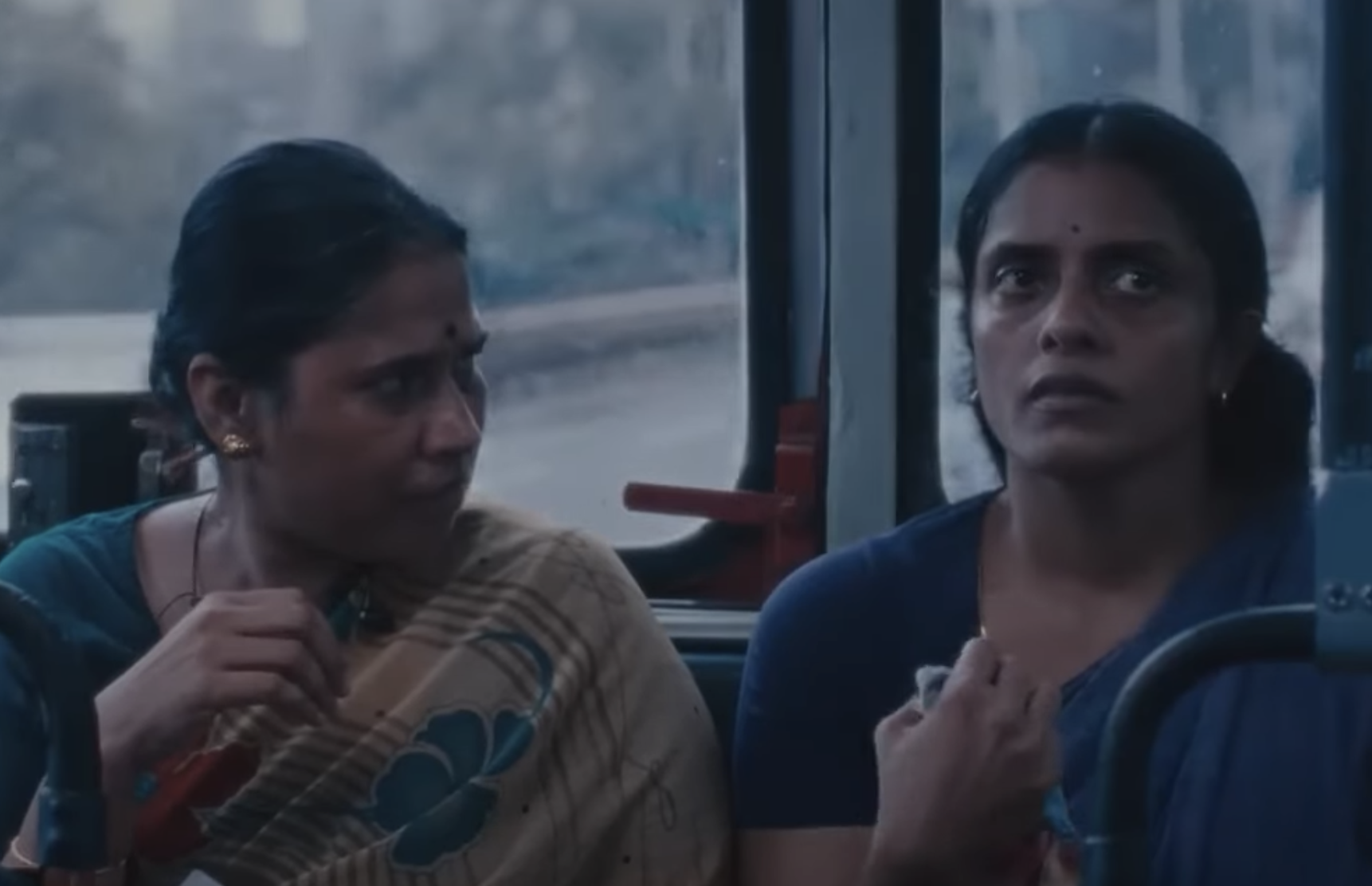A pair of all-media screenings for Todd Phillips‘ Joker: Folie a Deux will happen in New York and Los Angeles on Wednesday, 10.2. The film will begin playing in plexes all across the country the following night (Thursday, 10.3). This means that Warner Bros. marketing has very little confidence in the critical reaction being positive. Joker 2 was slammed not long ago by Venice Film Festival crickets. I for one am holding out hope that Phillips has thrown a great wackadoo curveball, at least according to the Hollywood Elsewhere rate-o-meter.
Day: September 25, 2024
Not Cool
Three days ago (Sunday, 9.22) World of Reel‘s Jordan Ruimy reported that Martin Scorsese‘s Life of Jesus, in which Andrew Garfield was apparently set to star, won’t be filming in October after all. Or any time soon.
Two days later Variety‘s Clayton Davis reported the same thing as if it was totally fresh news. Davis ignoring the fact that Ruimy had the story first is impolite and unprofessional. The big trades have done this to Jeff Sneider repeatedly…par for the course.
Do The Right Thing — Stand Up For Excellence
Thanks to a confederacy of corrupt, clueless slowboats in India, Payal Kapadia‘s All We Imagine As Light is out of the Best Int’l Feature Oscar race. It therefore deserves and must receive a push for a Best Picture Oscar nom.
People need to see this masterful film and come to an obvious realization. Yesterday the Indian film industry — technically the Film Federation of India (FFI) — not only dropped the ball but embarrassed itself. They look like whores, fools. The U.S. film industry needs to correct this. Seriously. Kapadia’s film is too good to be shunted aside.
Posted from Cannes on 5.24.24: “My head is spinning from last night’s surprisingly moving and undeniably artful All We Imagine As Light, a feminism-meets-impoverished-social-realism drama from Payal Kapadia, a 38 year-old, Mumbai-born, obviously gifted auteur.
Shot in Mumbai with a third-act escape to a beach resort, All We Imagine As Light is all about subtle hints, moods, observations and milieu. I knew within 60 seconds that it would deliver profoundly straight cards in this regard — one of the seven or eight humdingers of the festival.
It’s a quiet, soft-spoken, women-centric film but without any current of vengeance or payback or “look at what pathetic fools men are”…there are hints of militant #MeTooism but little in the way of thrust.
What got me was the observational simplicity and restraint. I was deeply impressed with what can be fairly described as a reach-back to low-key Indian social realism, which is anything but the flamboyant Indian genre known as masala and regarded in some circles (I’m a little fuzzy about this term) as Dacoit cinema, which flourished in the mid 20th Century.
All We Imagine As Light, a title that’s very difficult to remember, focuses on three struggling women of varied ages who work in a second-tier Mumbai hospital (Kani Kusruti‘s 30something Prabha, Divya Prabha‘s younger Anu, Chhaya Kadam‘s 40something Parvaty).
There are only two noteworthy supporting males (a timidly amorous doctor and a bearded man recovering from having nearly drowned) — both are passive and of relatively little consequence.
The three women are all living in the massive, overflowing, sea-of-ants sprawl of Mumbai, and the tone is basically one of resignation and frustration or, if you will, “we’re all unhappy but social codes are very strict and so we believe in staying in our lanes…restraint and decorum…but we’re going a bit crazy underneath.”
And you can tell from the get-go that Kapadia knows what she’s doing. Her film is solemn, visually plain, matter-of-fact, unsentimental — the work of a formidable, singular filmmaker who knows herself and isn’t into showing off. This is a truly masterful arthouse flick.
I Would Have Preferred A More Challenging…Okay, A More Insulting Tone
Last night I finally went to see Matt Walsh‘s Am I Racist?
Walsh’s low-key manner, gravelly-gurgly voice and logical trains of thought make for an engaging package. And the film certainly comes to the right conclusions, of course — since ’19 or thereabouts and certainly since the George Floyd summer of 2020 many of us (wealthy liberal women in particular) have been prodded and besieged by maniacal race-hustlers.
But the amiable Walsh struck me as being a little bit afraid of sounding too snippy and smart-ass. I could have punched up Matt’s narration if asked. I got a distinct feeling that he didn’t want to let his inner white guy off the leash.
Am I Racist?, in short, plays it a little too gently. It seems to skirt and soft-pedal — it’s a little too low-key. Too much respectful listening and not enough eye-rolling.
Matt’s strategy is to let the race-hustlers hang themselves, which mostly succeeds as far as it goes. But I wanted more of a Ricky Gervais or an Adam Carolla or a Bill Maher-like attitude. Why couldn’t Matt just say what the woke cultists seem to believe, which is that POCs are generally angelic figures with halos and white males (especially the older ones) are more or less demonic Trumpies who need to be shunted aside?
Friendo responds: “But that’s the whole point. It was the same with What is a Woman?. Walsh made it in such a way as people could not write it off as mocking or vicious. People expected it to be a Bill Maher thing but it wasn’t. That was the brilliance of it.”
Those Who’ve Seen “Anora”
SPOILER WARNING FOLLOWS!

Opposite Peas in Polish Travel Pod
Jesse Eisenberg‘s A Real Pain (Searchlight, 11.1), a quirky, shifty dudes-travelling-through-Poland thing, is going to connect because of Kieran Culkin‘s richly eccentric and occasionally unhinged character, Benji Kaplan…one of those hyper, live-wire guys whose irreverent, unfiltered energy most of us can’t help but enjoy or even get off on in short bursts.
But Culkin’s stoned-jumping-bean manner is also a bit much after repeated exposures. And knowing that Benji is doomed to some kind of arduous instability later in life…a poet who’s fated to “die in the gutter,” as Bob Dylan might put it…is, of course, quite sad.
Everyone has encountered a Benji or two in their life, and this is the film’s big irresistable draw. A Real Pain has to be seen for the Culkin effect. I had heard quite a lot about his firecracker turn, and yet Culkin didn’t disappoint in the least. God, what an amazing, infectious asshole…love his shpiel! And I adore the fact that he loves to sit in airline terminals and study the travellers.
Pic is basically about a pair of tristate-area Jewish cousins, crazy Benji and anxious, straightlaced, somewhat dull David (Eisenberg, who is strangely being campaigned for Best Actor with Culkin going for a Best Supporting nom) embarked on a group holocaust tour in Poland. The usual intrigues and complications ensue.
On top of which Dirty Dancing‘s Jennifer Grey, 63 years young when the film was shot in mid ’23, is also a participant. (The others are like lumps of mashed potatoes.)
This, trust me, is an excellent trailer:
From Owen Gleiberman’s excellent 1.21.24 Variety review, posted nine months ago during Sundance ’24:
“David is a sweet but conventional middle-class drone, whereas Benji is a loose cannon — a bro who never grew up, the kind of dude who says ‘fuck’ every fifth word, who advance-mails a parcel of weed to his hotel in Poland, and who has no filter when it comes to his thoughts and feelings. He’ll blare it all right out there. Since he’s a brilliant and funny guy who sees more than a lot of other people do, and processes it about 10 times as fast, he can (sort of) get away with the running monologue of hair-trigger nihilist superiority that’s his form of interaction. He can also be quite nice, and knows how to play people.
“Benji is a hellacious man-child the world should shun, only he turns out to be the life of the party. But at heart he’s an anti-social misfit, one who’s clinging to the recklessness of youth just at the moment he should be leaving it behind.
“[And] yet Culkin, for all his crack timing, is not giving a ‘comedy’ performance. He’s doing a sensational piece of acting as a compulsive wiseacre addicted to the ways of one-upmanship. Benji has the personality of a hipster slacker crossed with that of a corporate dick. He’s funny, he’s rude, he’s charming, he’s manipulative, and he will suck the life out of you. Yet Culkin makes him real, and the movie, which Eisenberg has scripted with an ear for the music of ideas and for contrasting voices, presents the story of these two cousins — how they interact, what they mean to each other, how their past intersects with the present — in a way that’s so supple you can touch their reality.
“To put it as Benji might: This, people, is what fucking filmmaking is about.”



